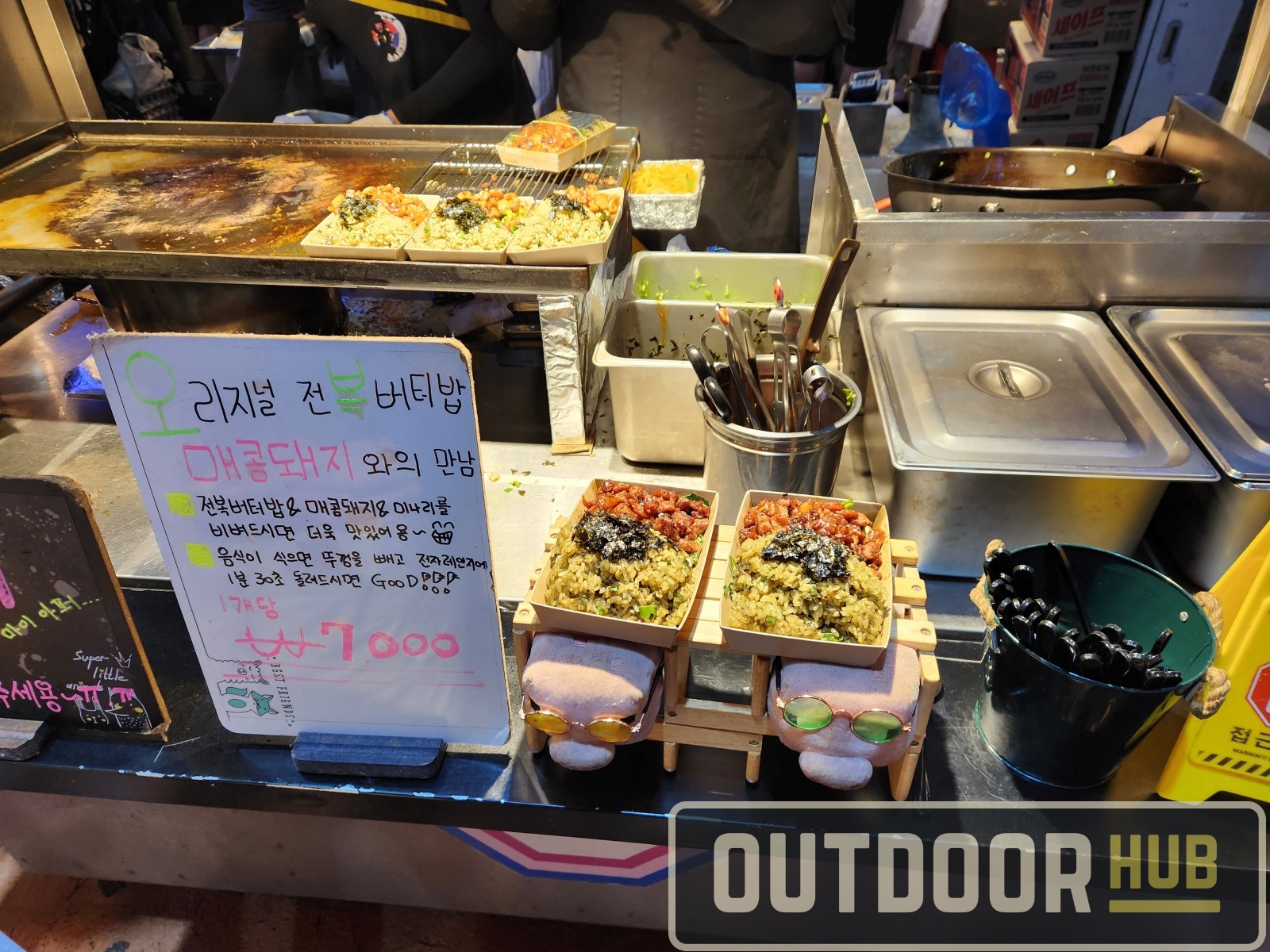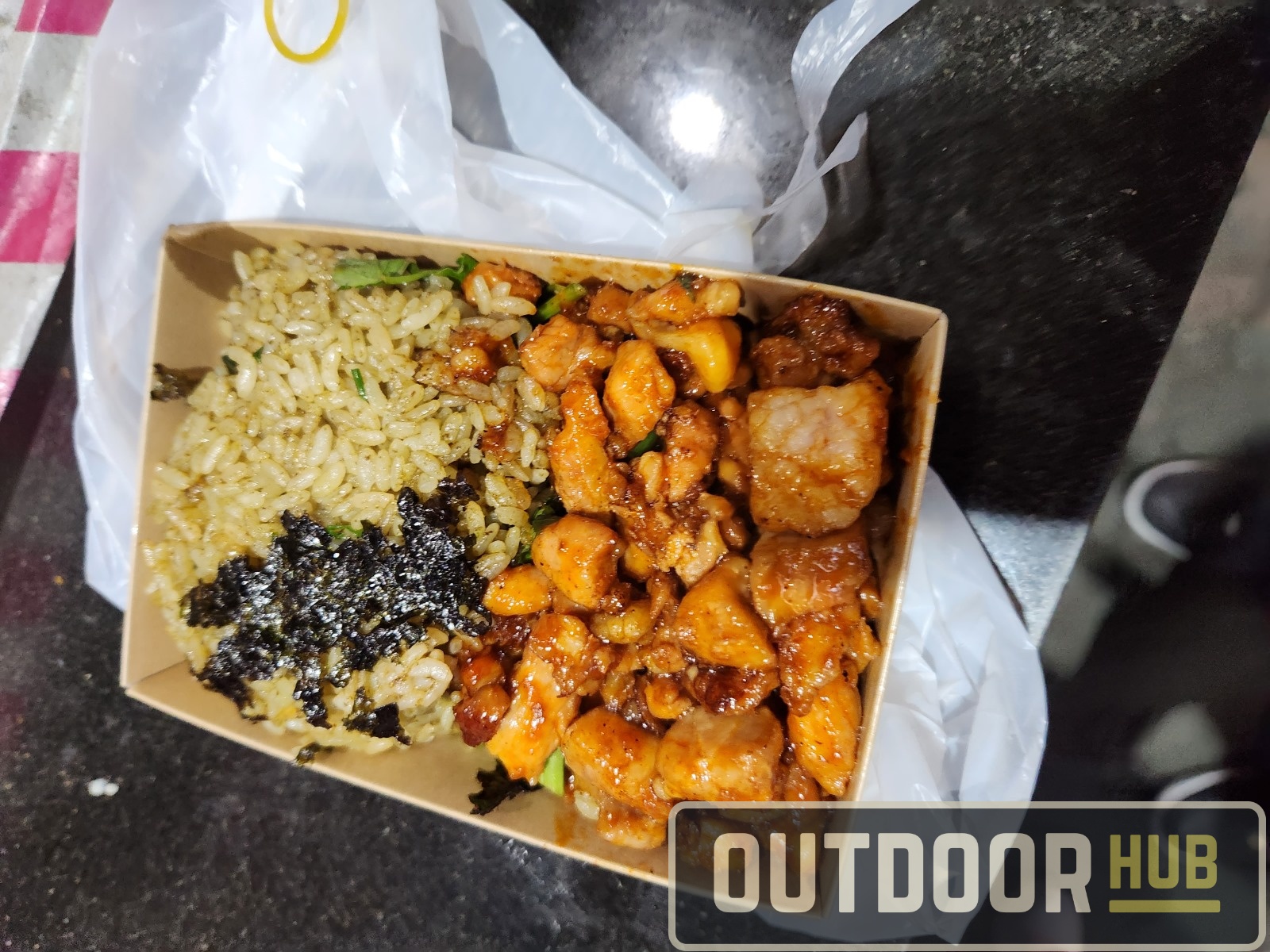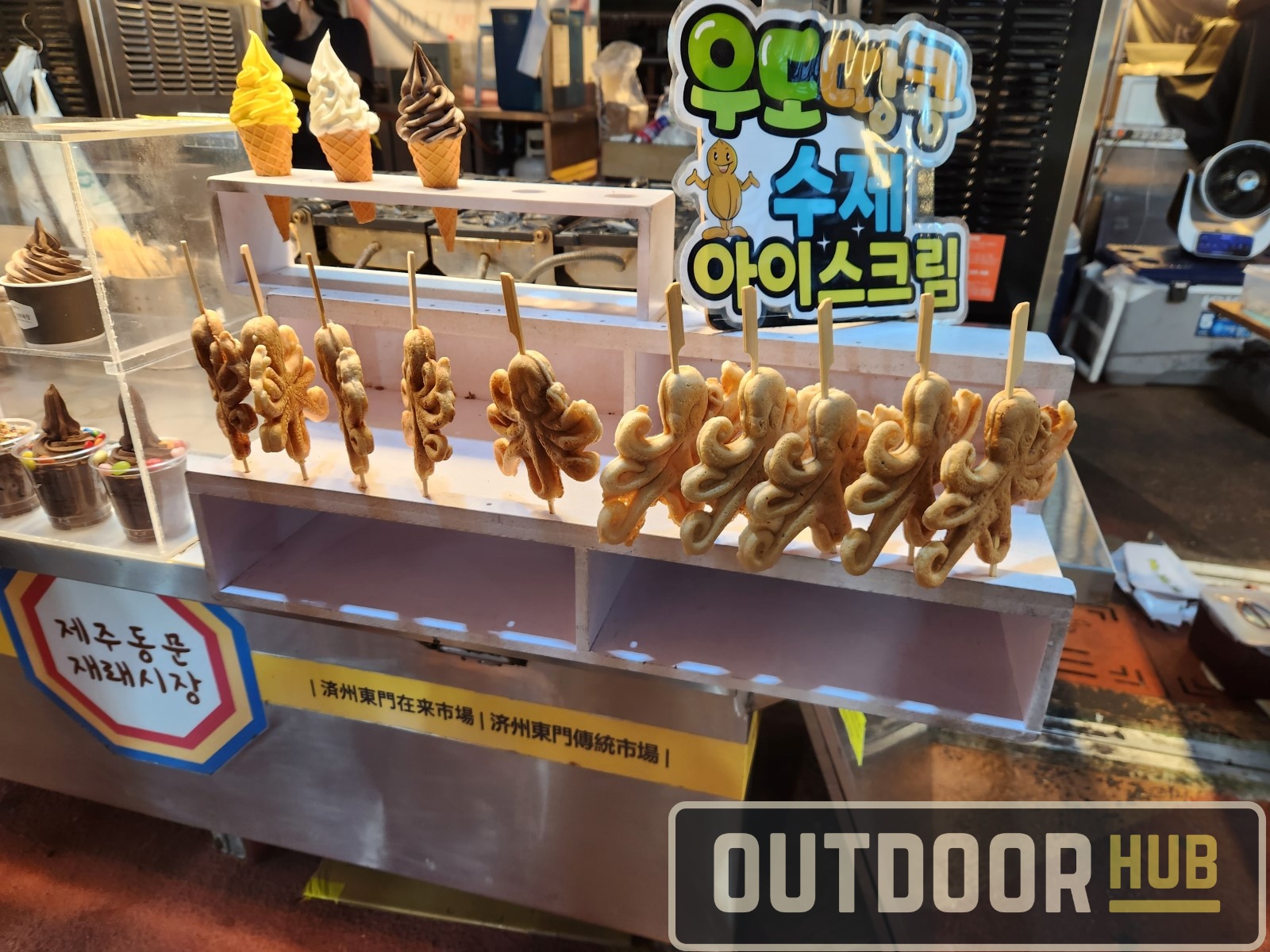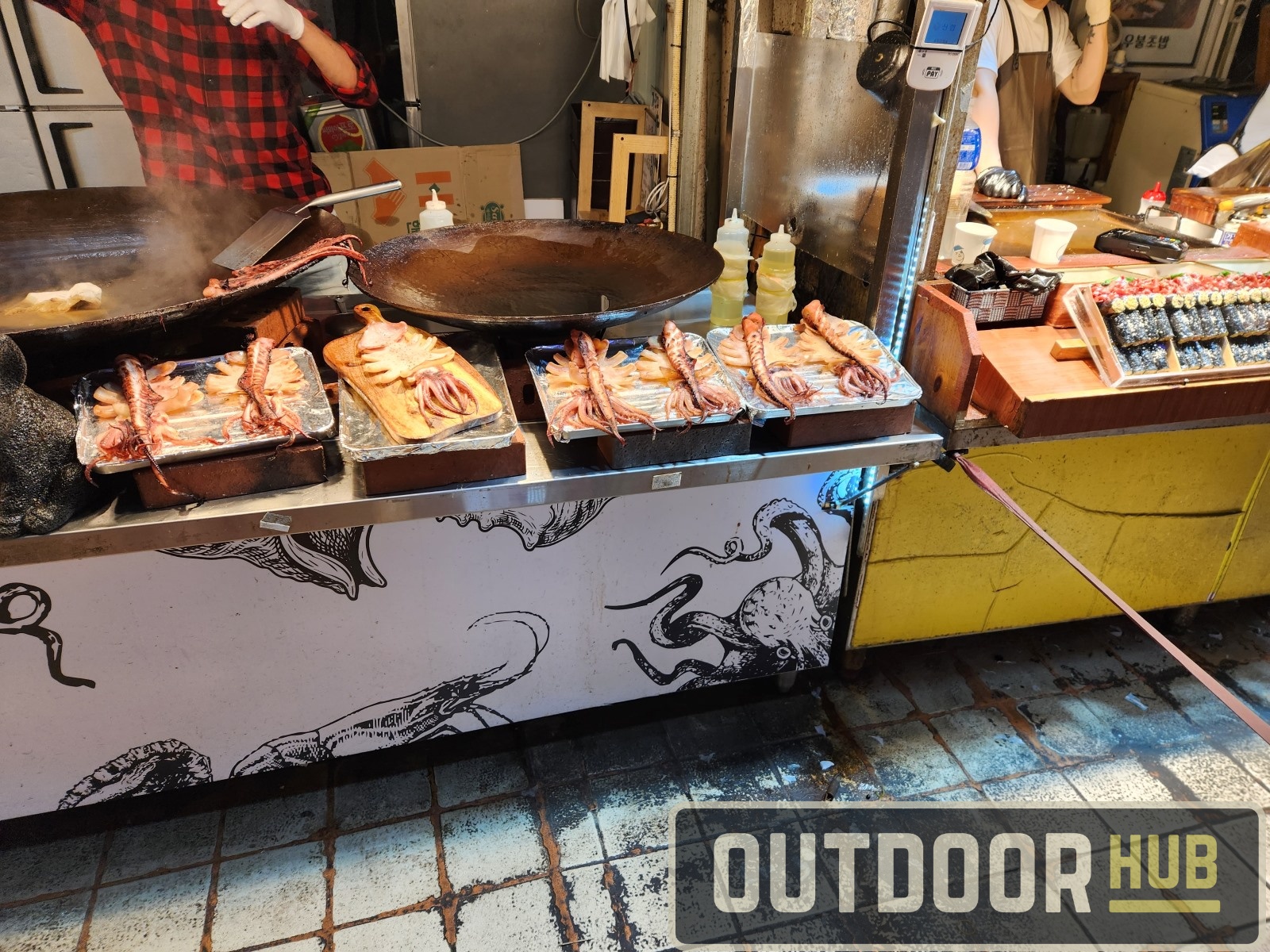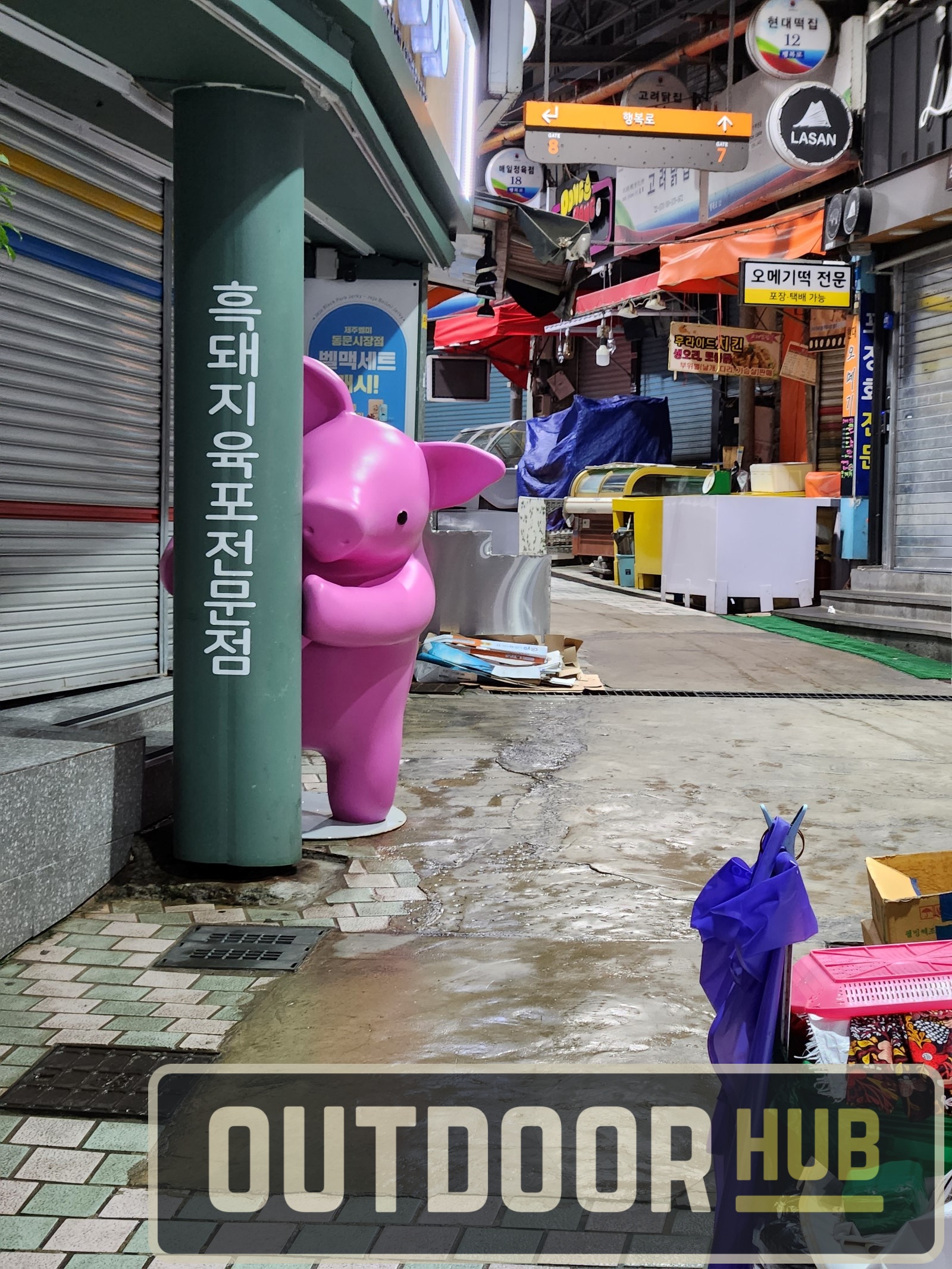Traveling South Korea – Jeju Dongmun Night Market
Eugene L. 10.05.23

So I’ve already shown y’all a Korean Traditional Market in Daejeon on the mainland, but here’s a slightly different market on Jeju Island. This time instead of the grocery and dry goods side of the market we are going at night to check out the food at the street market inside Jeju Dongmun Traditional Market. This is a section that only opens in the evenings and only sells food. The Jeju Dongmun Night Market is composed of three rows of street food vendors. This place has an assortment of Korean foods that use specialty local ingredients from Jeju Island and the waters that surround it. From seafood caught right off the shores of the island, Jeju Island Black pork raised inland, or local high-quality citrus grown from one of the countless orchards doting the island.
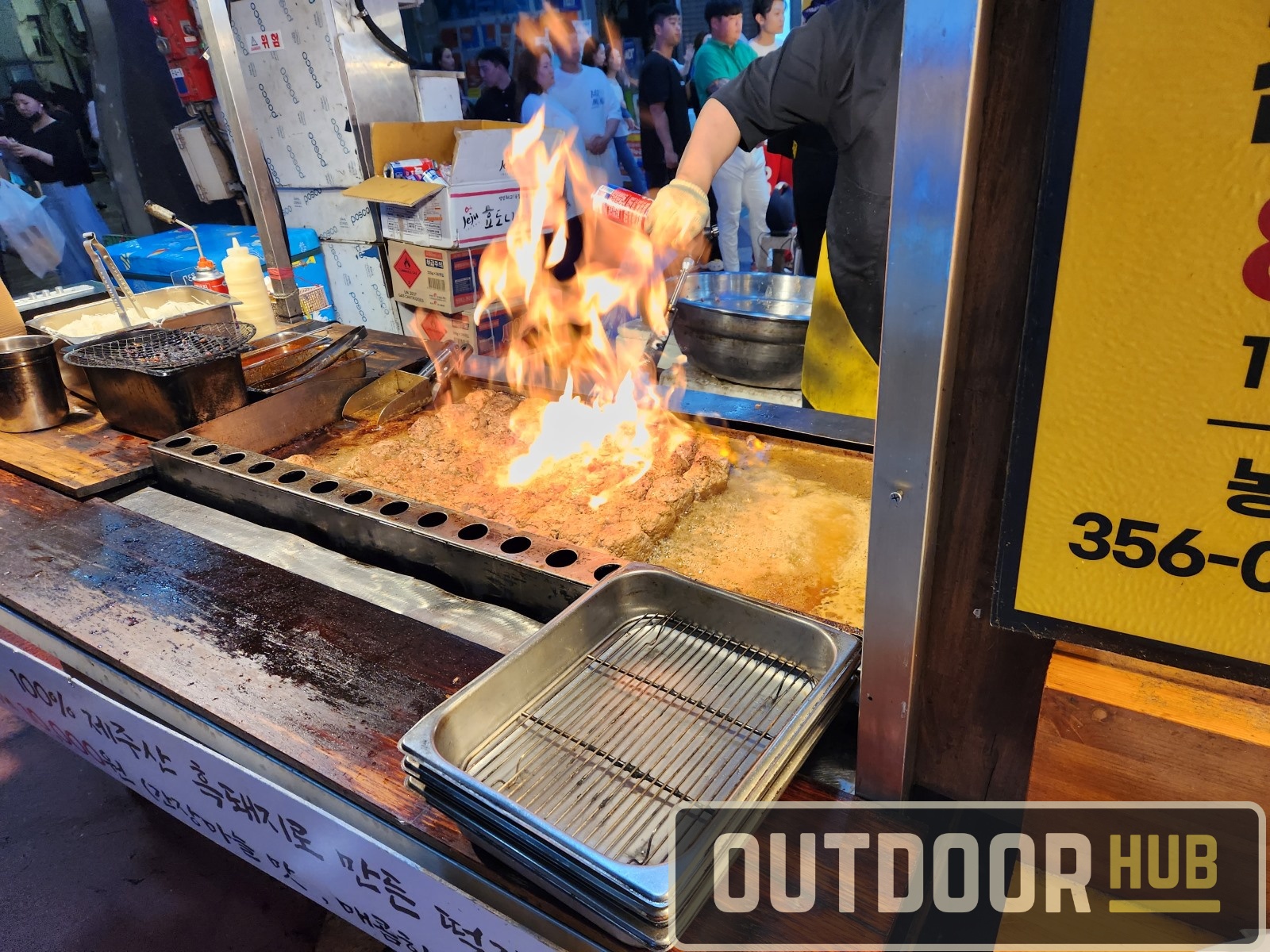
Okay, let me tell you first off. Don’t drive to the night market even if you have a rental car. Just take a taxi from whichever hotel you are staying at. There is parking available around Jeju Dongmun Traditional Market, but spaces are very tight and limited. There are a ton of pedestrians and scooters buzzing by so just call a taxi. For four of us to get there, it cost under $10 USD from the Jeju Grand Hyatt to the front entrance of the market, and if I remember right, it cost just about that to get back. Once you get out of the taxi at the market entrance, you’ll see stands selling all the different local citrus varieties, often in gift boxes to take home as souvenirs. Jeju island has been known for its citrus for millennia. Citrus has been grown here since it was the Tamna Kingdom(?–1404 AD). We got there a bit later in the day so a lot of the market stalls were already closed for the day, like the one below. The stalls were shuttered up and covered with only the night watch to keep their products safe against any possible pests.
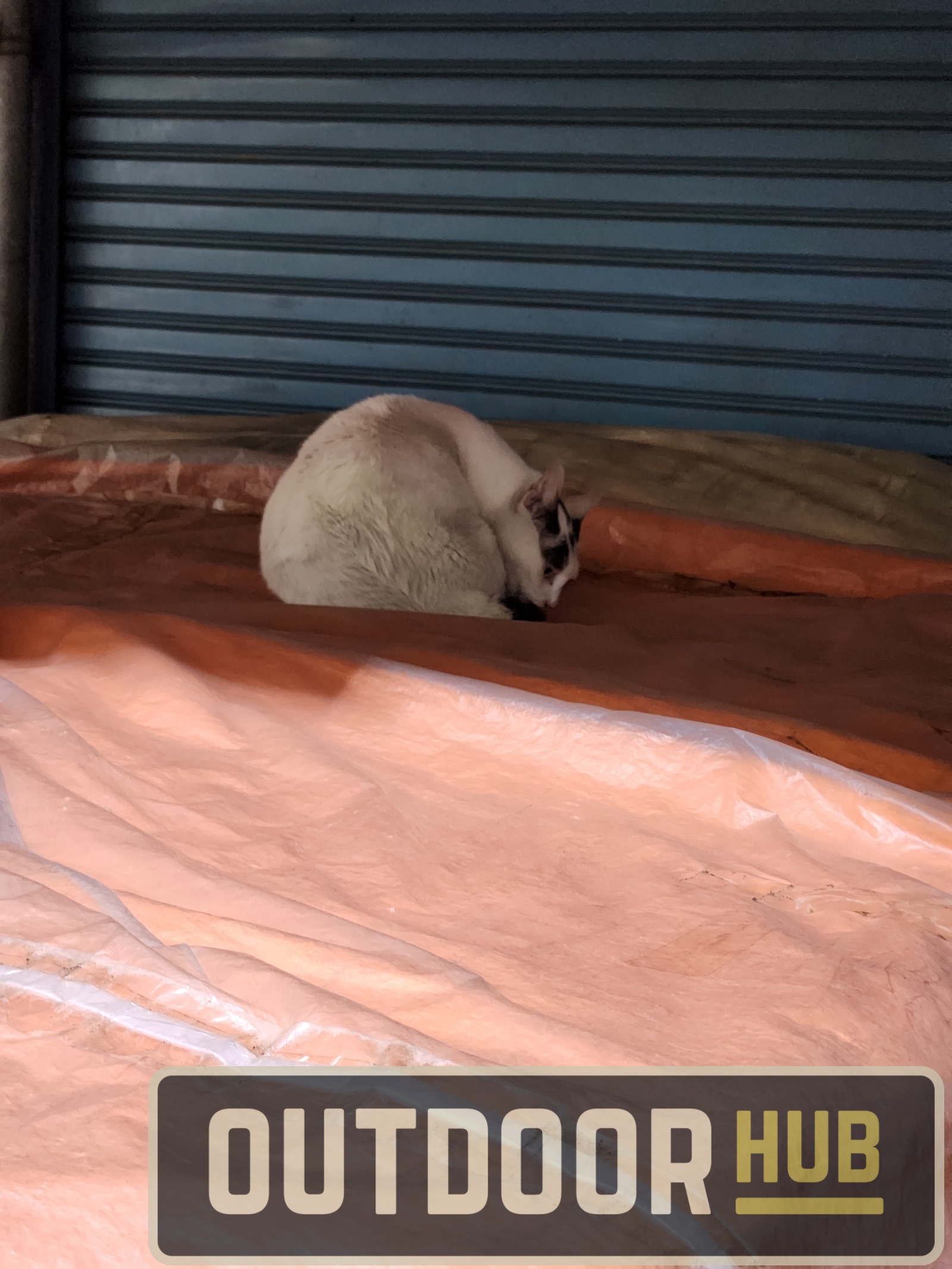
While the stalls up front were closed, that wasn’t the case for all of them. The closer you got to the night market, the more vendors were open. Especially the seafood vendors, all of which double as sashimi stalls that can either sell you the whole fish or cut it up for you if you want on the spot. Like at the other traditional market, all the vendors will call to you trying to get your attention to buy something from them. I wish I had gotten some photos, but showing interest and stopping for pictures would have stopped us on our way to the night market. We had to keep going further to reach the night market on the other side of the complex.
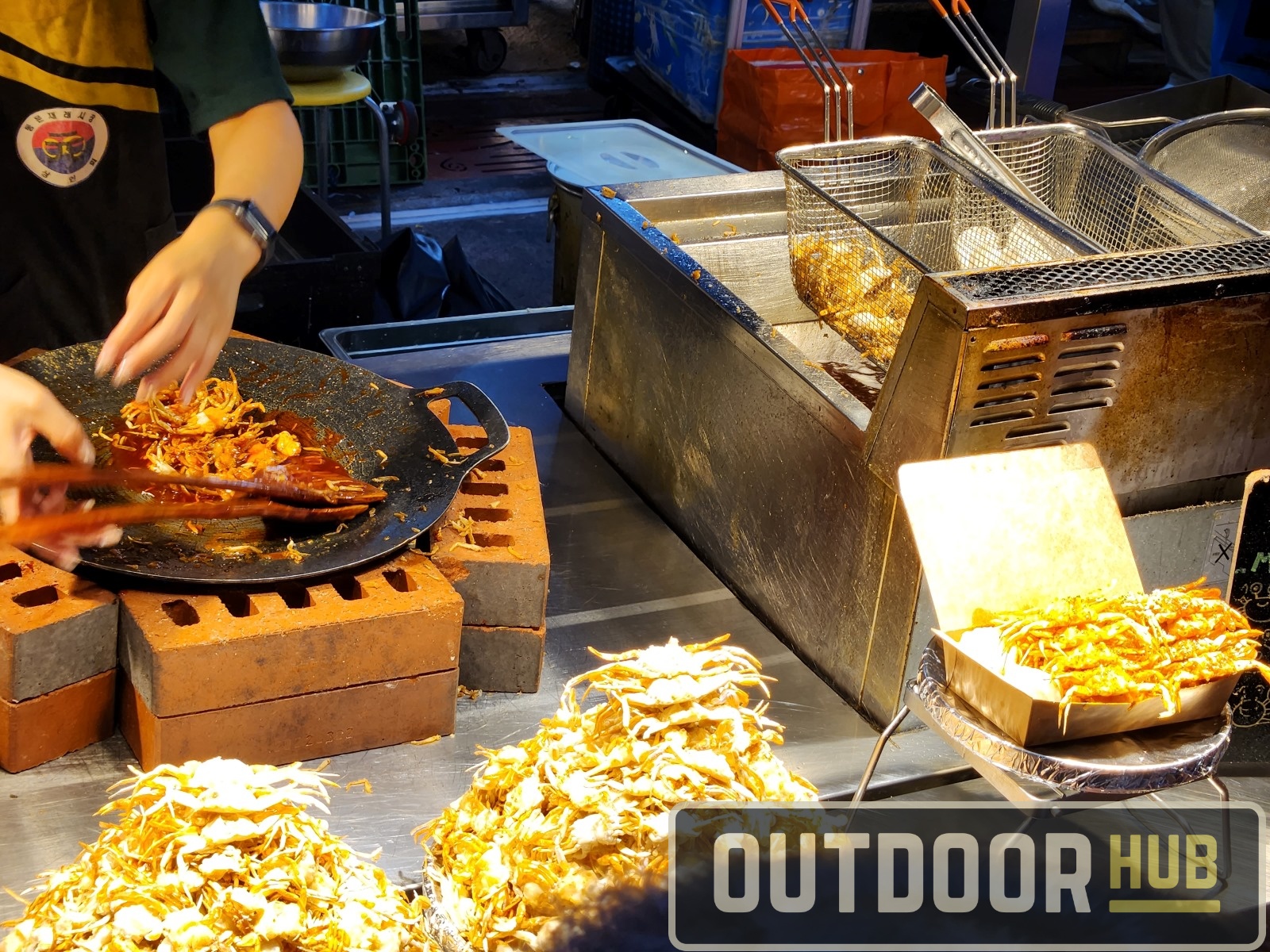
You will know when you start to get close to the market. You can smell it a good way before you can see or hear it. The smell of food frying on griddles, flame-cooked meats, and spices wafts through the air. The first thing you will see is a traffic jam of people crowding around a stall that sells lobster and whole snow crab. The special thing about this stall is that all the staff have a K-Pop-style dance number as they cook. Music blaring the whole time, they draw in a giant crowd. While this smelled good, and I love lobster and crab, I didn’t travel all this way to eat a lobster that came from the US. Once you get past that crowd, though, the night market opens up a bit to other various stands, many of which offer Jeju black pork products. Besides the crab and lobster, most of the dishes offered by vendors were under 10,000 WON ($ 7.50 USD).
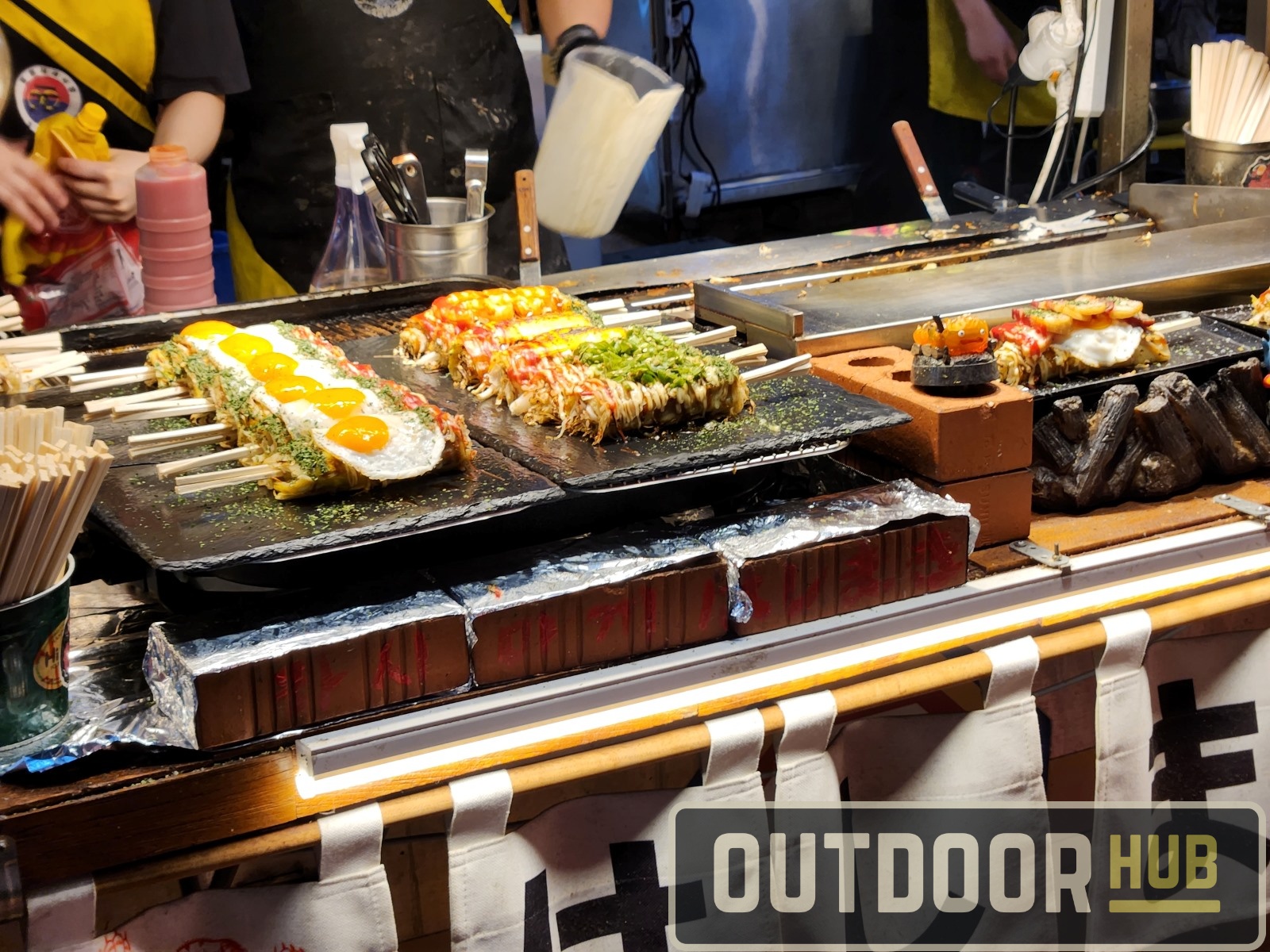
Before you get anything, I recommend yall take a lap around the night market to just get a read of everything available. There are a lot of choices, but a few places have repeats of dishes. Also, come with a group. That way y’all can try and share more things there. And lastly, cash is king, while all the stalls did appear to accept cards though. So we did a lap around the place to see what everyone had and started off with Abolane Kimbap. The rice is seasoned and mixed with abalone and abalone liver, then wrapped in roasted laver seaweed along with a little piece of sausage, and then finally wrapped in a sheet of fried eggs before being sliced and served with some radish pickles. If I remember right, this tray was about 7000won or about $5 USD, and it was delicious with great umami from the abalone liver.
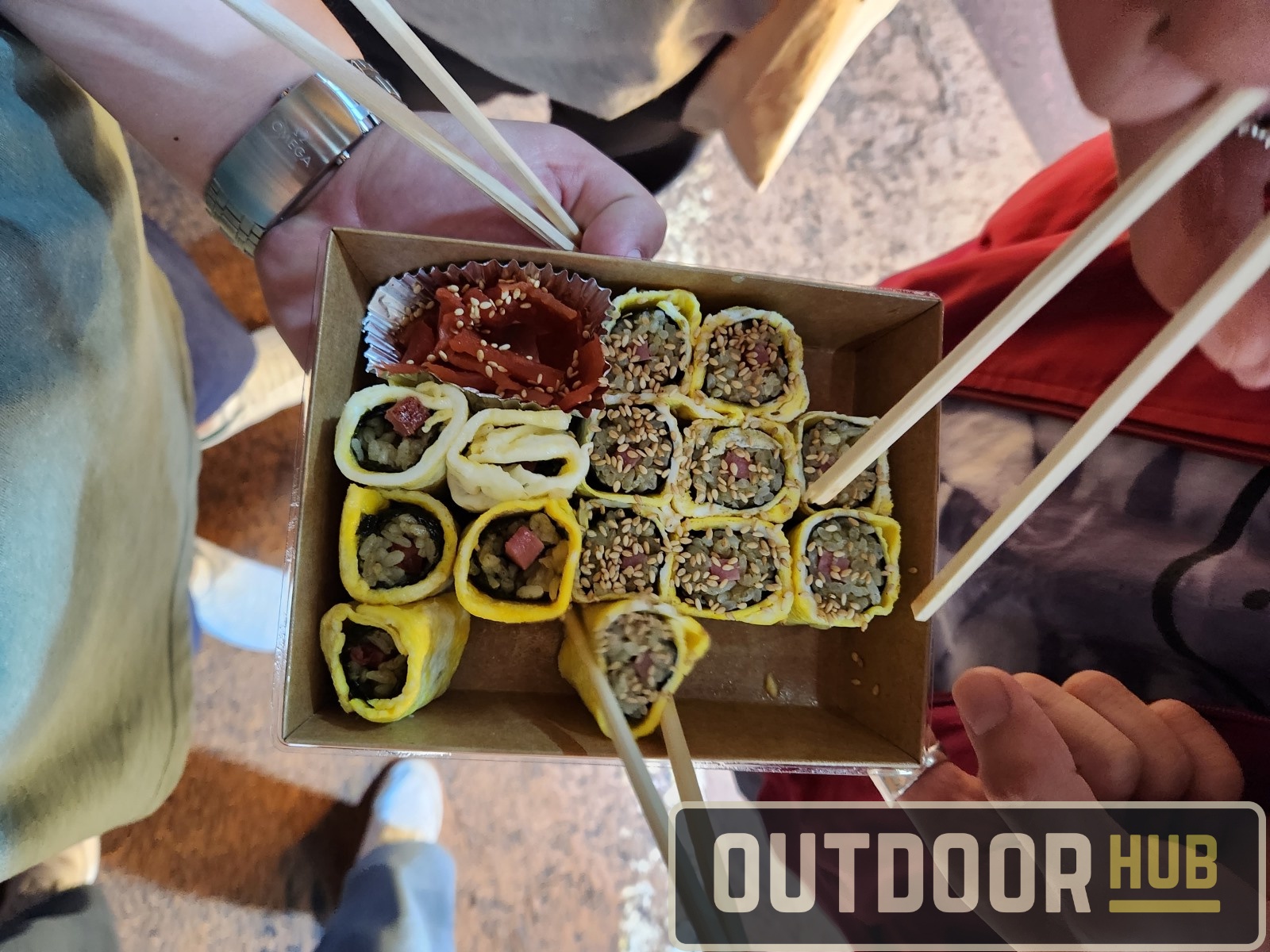
Of course, as I talked about the fresh live seafood on our way in, there was a vendor that was right in the night market. It wouldn’t be a Korean Traditional Market without live seafood, so this was our next stop. This place had stacks of tanks that were full of local fish, red seabream, seabass, olive flounder, mackerel, and a bunch of shellfish. Most of these fish are from the waters around the island, either from local fish farms or wild-caught. I asked the old man running the place if they even had local live squid earlier but had sold out already.
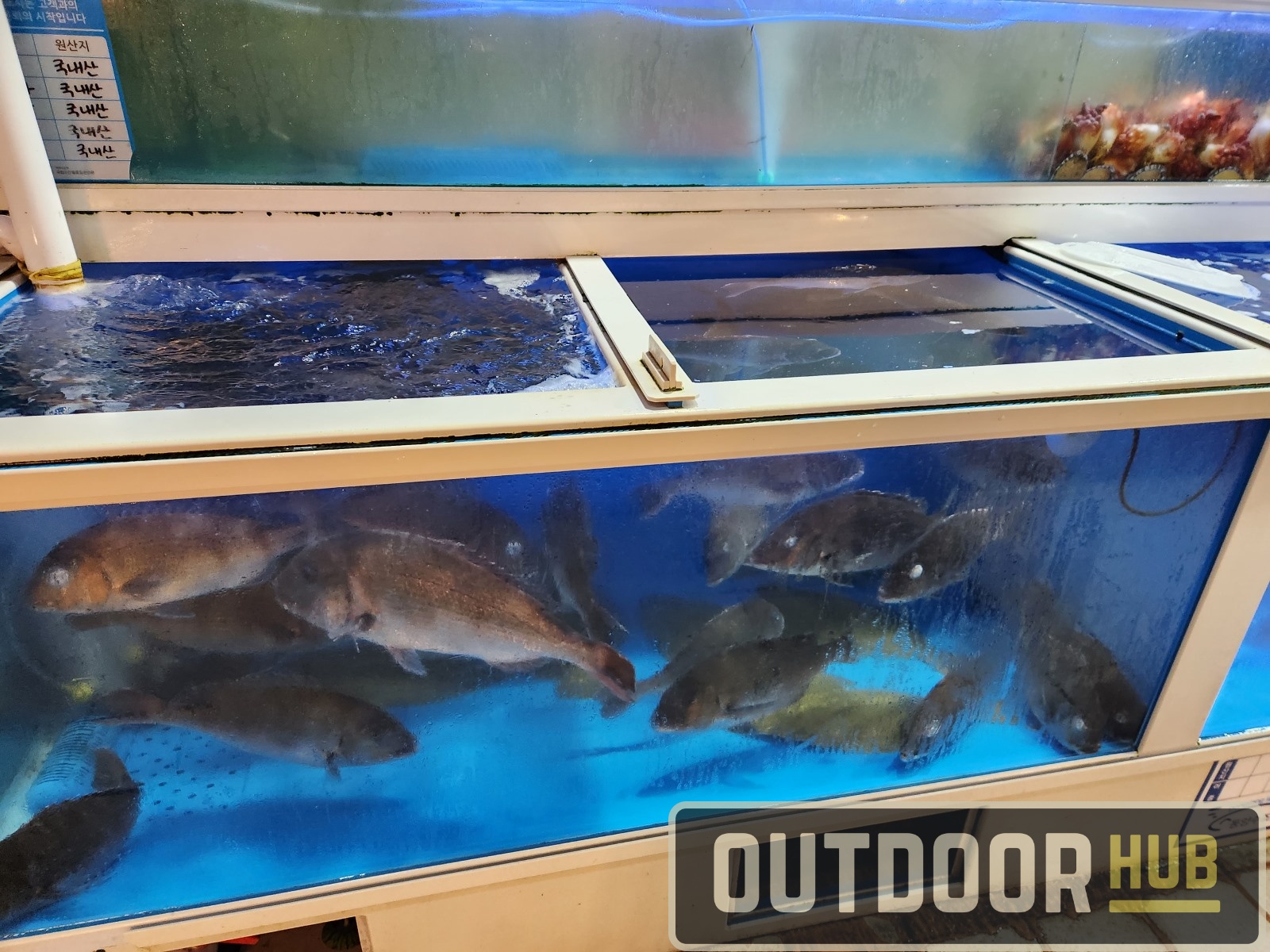
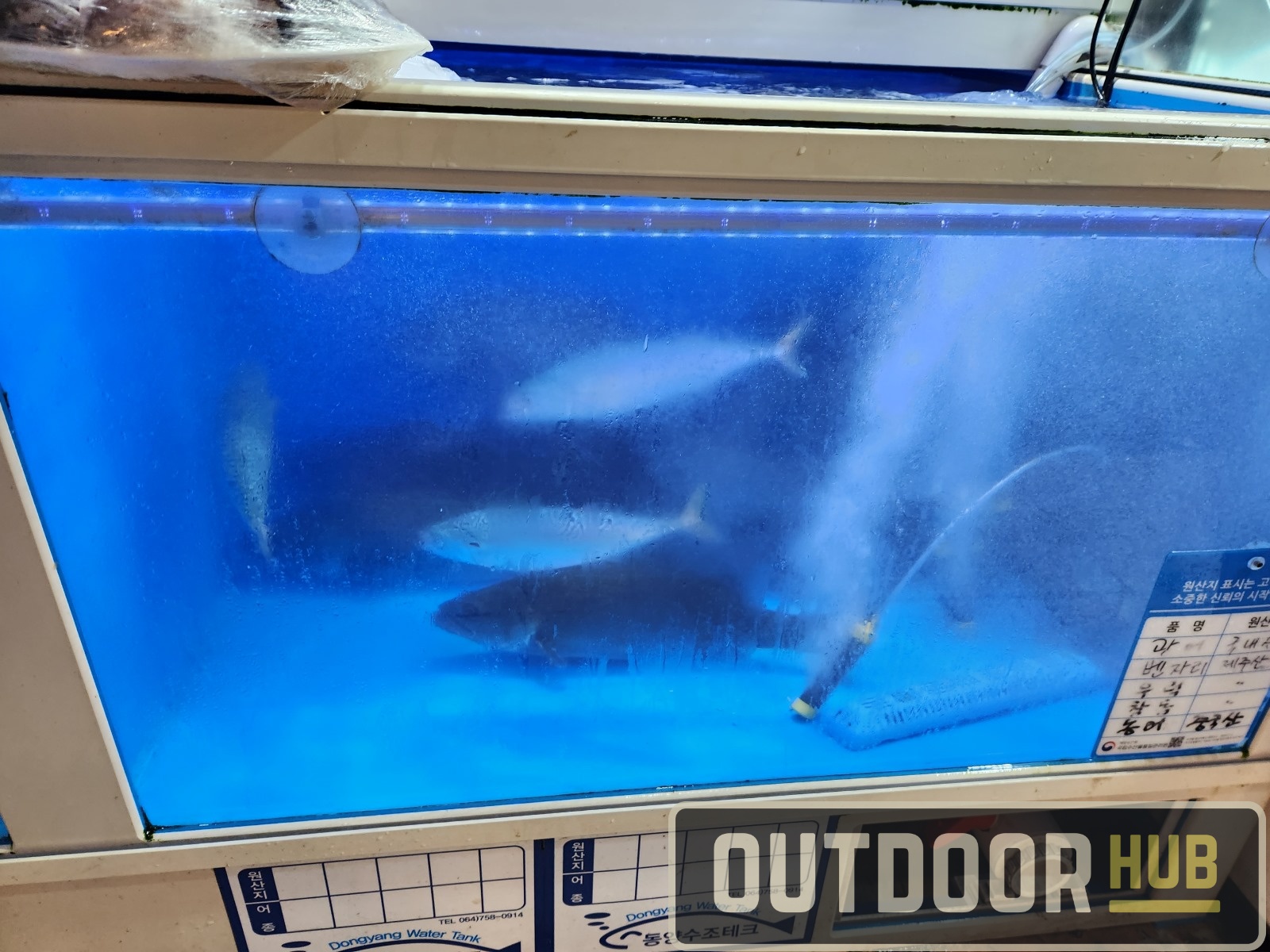
In his cold display case, he also had all these prepared plates of sashimi. He also had something unique to Jeju. Ddak shrimp, Red-banded lobster (Metanephrops thomsoni). This is a deepwater species in the lobster family similar to langoustine or scampi. In the US, I’ve had langoustine before, but this was a frozen product and had to be cooked. They cost about $30 a pound at wholesale for whole langoustines. These Ddak shrimp are locally caught in traps and then served fresh and raw. They were incredibly sweet, like an amaebi(sweet shrimp) on steroids. For 11 Ddak shrimp tails, it was 10,000won(7.50USD). That is incredibly cheap for such a high-quality product.
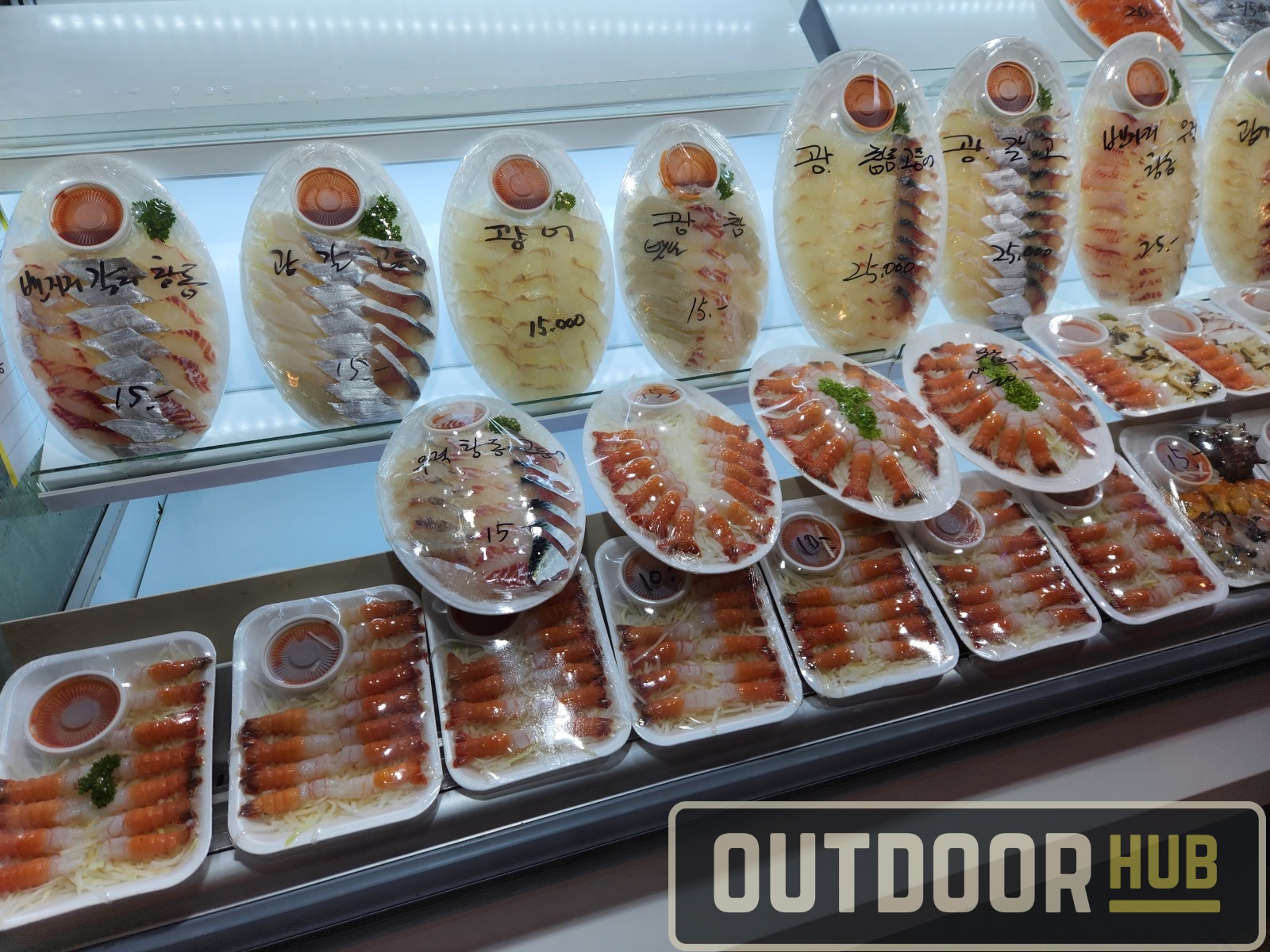
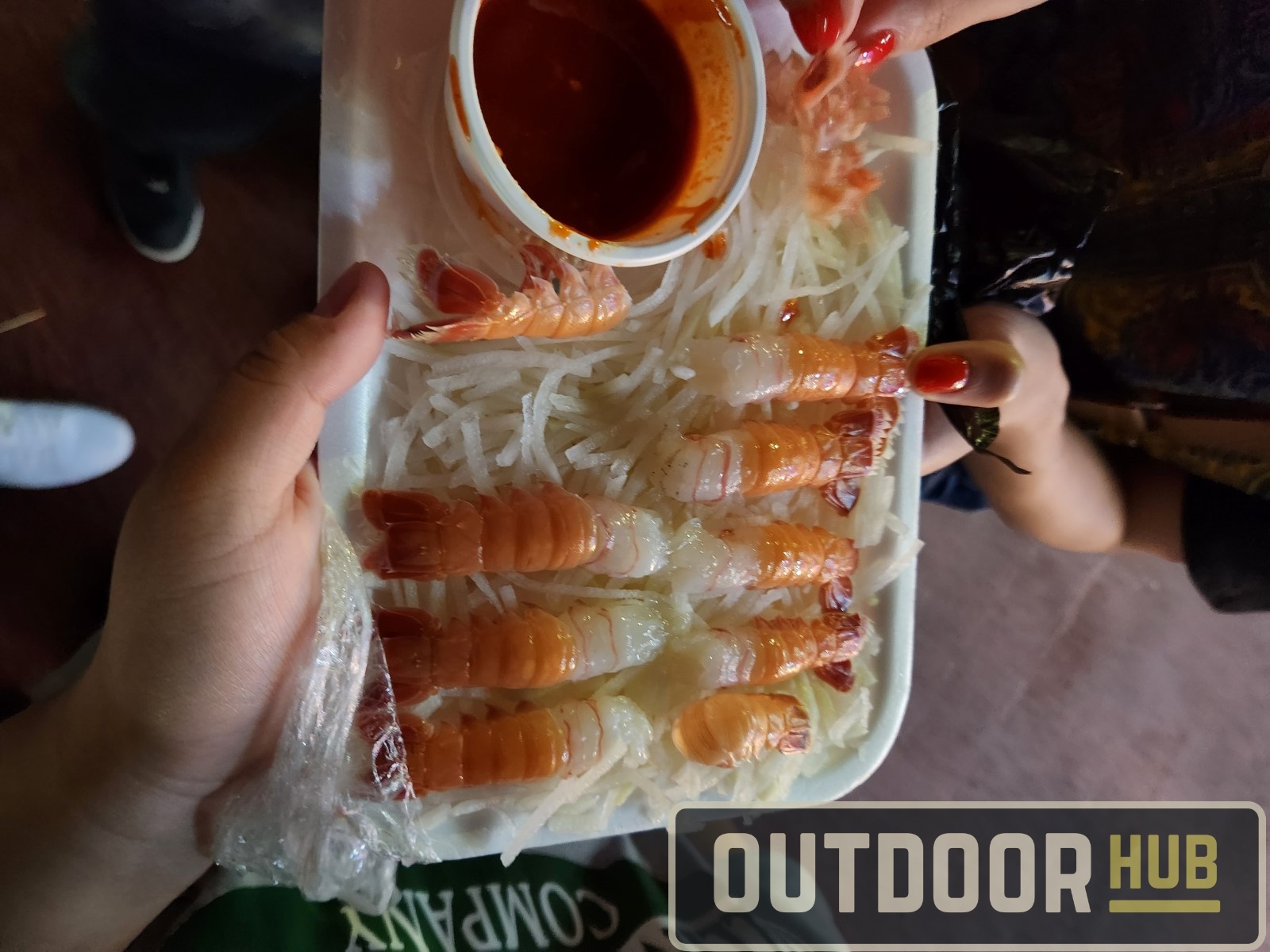
Going from some of the best shellfish I’ve ever eaten, I had to get this little classic. Topokki Odeng, a sheet of odeng fish cake on a stick that has been simmered in spicy Toppokki sauce Each skewer was only 1000 Won (75cents). These are delicious, kind of a childhood classic for Korean people, don’t sleep on these skewers.
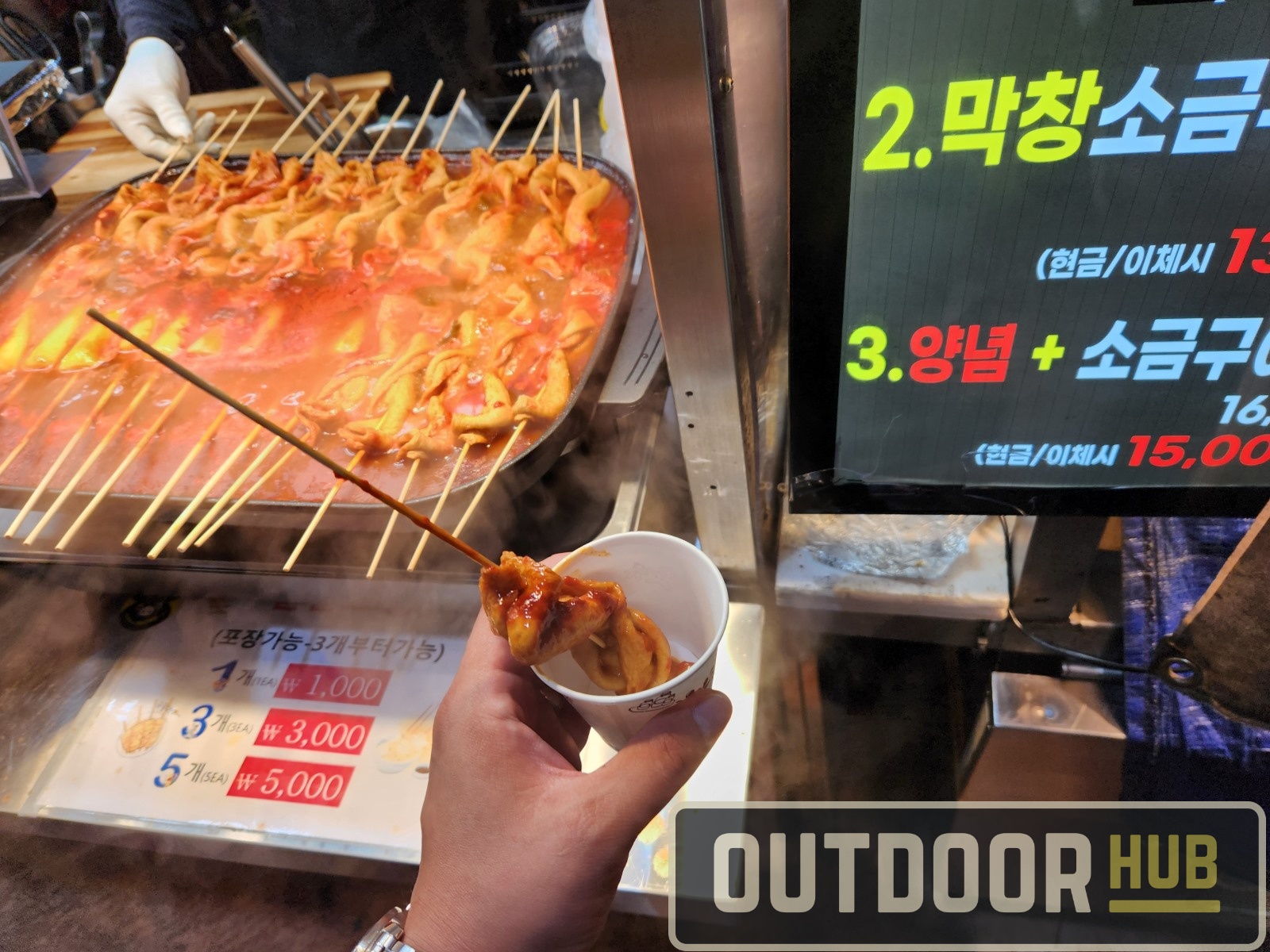
Next thing we got after the odeng fish cake, we got some Jeju island black pork. We went to a stall selling rolled cuts of pork belly wrapped around onions, cabbage, and chili peppers. The whole thing is griddled and flame-roasted. Then basted in a sweet soy-based sauce. The thing was sliced then served and weighed like 2 pounds, only costing 10,000 won ($ 7.50 USD).
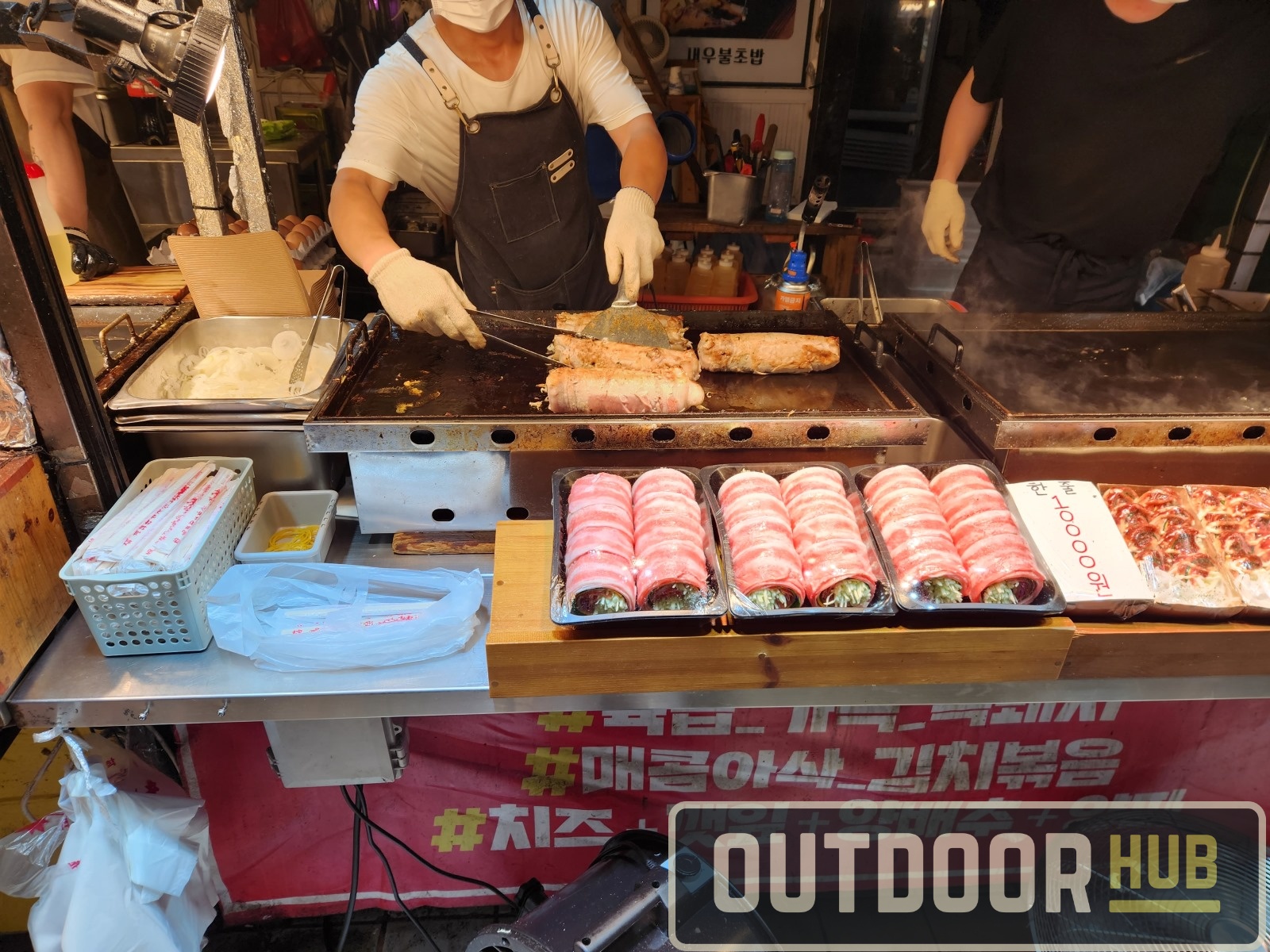
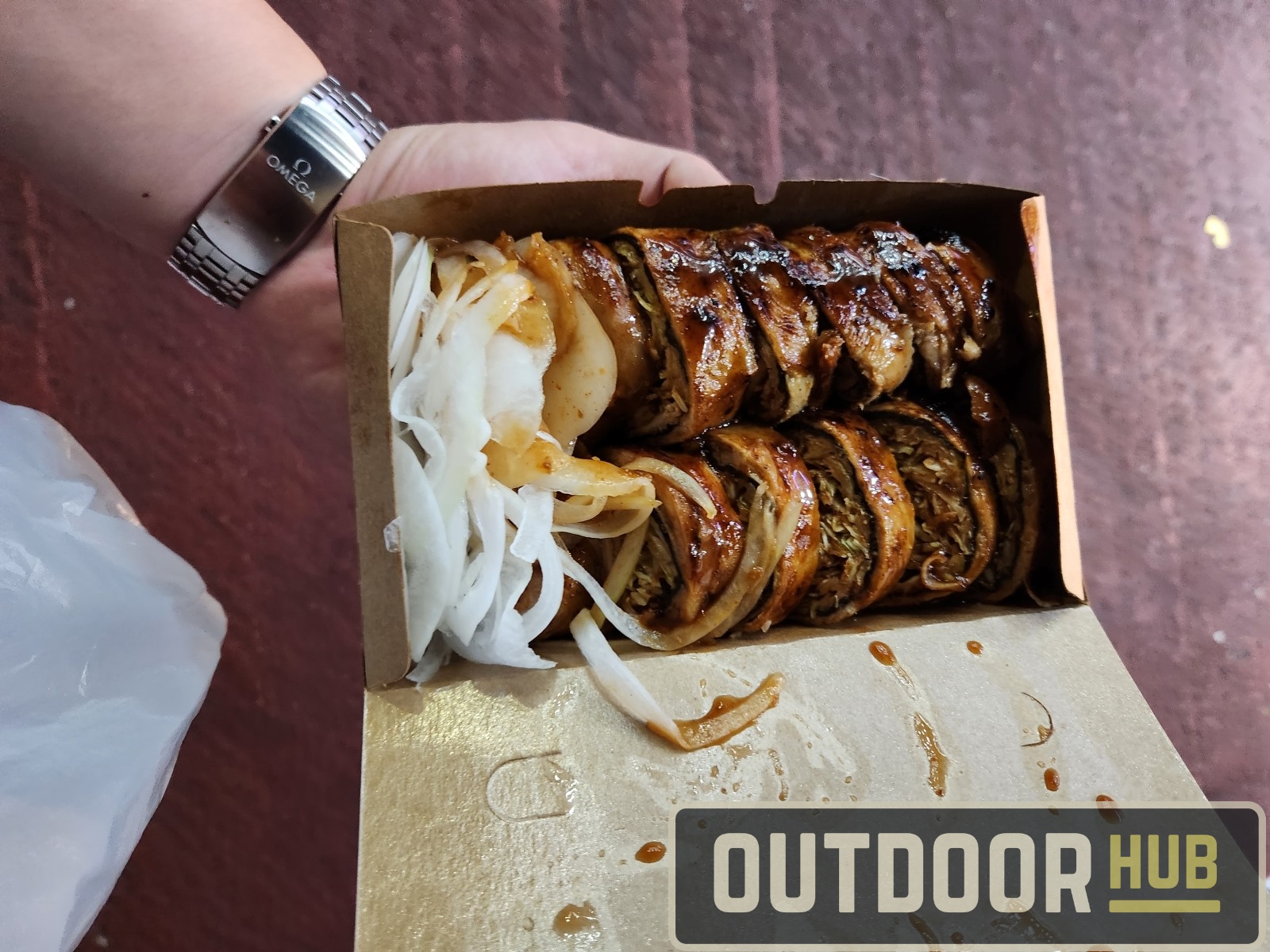
I’ll tell y’all this isn’t a vegan-friendly market, not even a vegetarian-friendly market. Korean food is heavy in meat and seafood. Even kimchi uses salted shrimp, fish sauce, or oysters, depending on the recipe. So we did find a technically vegan spot that sold only juice. Fresh-made Jeju hallabong tangerine juice, he had cans ready for you to take home or you could order cups of it which you would see him load up the juicer full of tangerines and juice right in front of you. This drink was definitely a bit pricier for a cup of juice, but it was delicious, an excellent blend of sweet and tart, and super refreshing during the summer heat.
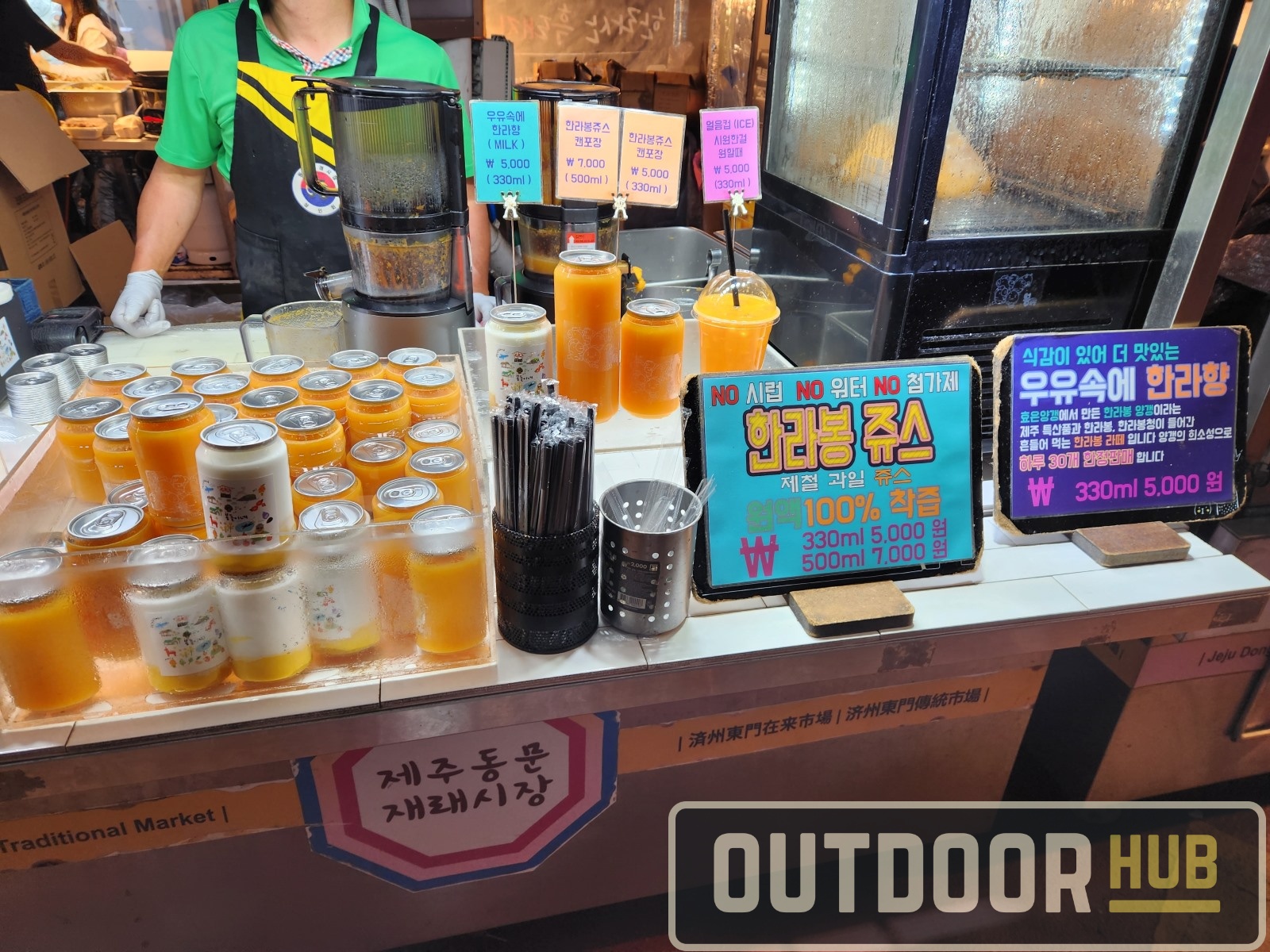
I’ve gone on now long enough just telling y’all the same thing: the food was excellent and cheap. But that’s the truth, it was all super affordable. We spent well under $60 USD for 4 people to all be full by the end of the night. If you made it this far, thank you for still reading this. I just want to say it again If you’re in Korea and go to Jeju Island, come here and experience this at least once. It is a bit crowded, but this is a great spot to see. This being a vacation destination, the vendors are pretty good at understanding people who don’t speak Korean here, and some speak multiple languages. Make sure to go with friends and family if you can as well. Share all the food together, in Korean culture, sharing good food together is important. So, while I can’t share a plate with y’all, I can at least share the pictures.
